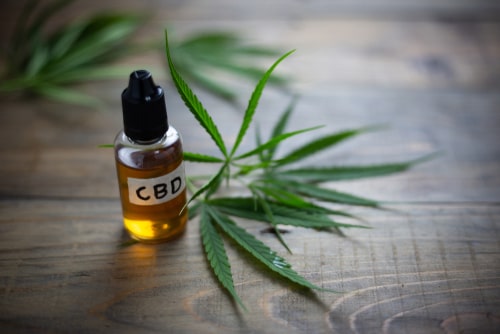The Legalities of CBD, THC, and Hemp Products in Texas
 As the popularity of CBD, THC, and hemp products continues to rise, it is crucial to understand the legal implications surrounding these substances. It is beneficial to know what you can and cannot do, and how a Texas lawyer can help if you get charged with a THC-related charge.
As the popularity of CBD, THC, and hemp products continues to rise, it is crucial to understand the legal implications surrounding these substances. It is beneficial to know what you can and cannot do, and how a Texas lawyer can help if you get charged with a THC-related charge.
Hemp and CBD Legalization
In 2019, Texas took a significant step by legalizing hemp, while marijuana remains illegal. CBD products are now legal in Texas, provided they comply with state and federal regulations governing their manufacture and sale. CBD, or cannabidiol, is a non-psychoactive compound found in the Cannabis sativa L. plant. Unlike tetrahydrocannabinol (THC), which is the mind-altering compound in marijuana, CBD does not cause a “high”. Businesses can sell CBD products throughout Texas as long as the THC concentration is below 0.3 percent.
Manufacturing and Selling Regulations
For the safety of consumers and to maintain product quality, all CBD products are required to comply with stringent manufacturing, labeling, and sales regulations. The manufacturing or processing of consumable hemp products intended for smoking is banned in Texas. If products are legally produced and manufactured in another state, their sale may be allowed in Texas. It is vital for businesses to keep themselves up to date of the most recent regulations to ensure compliance and prevent legal complications.
Medical Use of Low-THC Cannabis
Texas laws allow for the medical use of low-THC cannabis by patients with certain health conditions, as outlined in Chapter 169 of the Texas Occupations Code. Low-THC cannabis for medical use may contain up to 1 percent THC. Patients who qualify under the state’s medical cannabis program can access these products through licensed dispensaries. It is crucial for patients and caregivers to understand the specific requirements and limitations of the program.
Marijuana Remains Illegal
While hemp and CBD have been legalized in Texas, marijuana, which is cannabis with a higher THC concentration, remains illegal under both state and federal law. Laws prohibiting the possession or delivery of marijuana can be found in Chapter 481 of the Texas Health and Safety Code. It is essential for individuals to understand the distinction between legal hemp-derived CBD products and illegal marijuana to avoid potential legal consequences.
How a Lawyer Can Help if You Get Charged for Illegally Possessing Marijuana
If you find yourself facing charges for illegally possessing marijuana in Texas, it is important to seek the assistance of an attorney. There are many ways a lawyer can assist you, such as the following:
-
An attorney will thoroughly review the circumstances surrounding your arrest and the evidence against you. They will assess the strengths and weaknesses of your case and develop a strategic defense plan tailored to your specific situation.
-
They can ensure that your constitutional rights are protected throughout the legal process. They will make sure that law enforcement followed proper procedures during your arrest and that any evidence obtained illegally is excluded from your case.
-
A lawyer can negotiate with prosecutors to reduce or dismiss the charges against you. They may be able to arrange a plea bargain that minimizes the potential penalties you face or helps you avoid a criminal record.
-
If your case goes to trial, your lawyer will vigorously defend you in court. They will contest the prosecution’s evidence, interrogate witnesses, and create a strong defense for you. The objective of your attorney is to establish reasonable doubt and achieve the most favorable result for your case.
-
A marijuana possession conviction can have serious consequences, including fines, jail time, and a criminal record that can impact your future employment and housing opportunities. Your lawyer will explain the potential consequences you face and help you make informed decisions about your case.
Contact a Fort Worth, TX Criminal Defense Lawyer
The legalization of hemp and CBD in Texas has opened up new opportunities for businesses and consumers. Staying informed about the specific regulations surrounding the manufacture, sale, and use of these products is vital. Work with a Tarrant County, TX criminal defense attorney for any questions about THC or charges. Call The Dameron Law Firm at 817-222-0624 for a free consultation.

 817-222-0624
817-222-0624







